I have a drupal 7 site running on MySQL. Some pages on the site are excruciatingly slow to load.
I investigated load times and have identified the culprit query, which is regularly taking 10s to execute on some pages. In one case it even took 70s!
The query is from a "view" that generates a short list of related content from elsewhere in the site based on the site taxonomy.
This is an example (with arguments) from one slow page:
SELECT node.nid AS nid, node.title AS node_title, node.created AS node_created, 'podcasts:panel_pane_3' AS view_name, RAND() AS random_field
FROM node node
LEFT JOIN (SELECT td.*, tn.nid AS nid
FROM taxonomy_term_data td
LEFT JOIN taxonomy_vocabulary tv ON td.vid = tv.vid
LEFT JOIN taxonomy_index tn ON tn.tid = td.tid
WHERE (tv.machine_name IN ('listen')) ) taxonomy_term_data_node
ON node.nid = taxonomy_term_data_node.nid
LEFT JOIN taxonomy_index taxonomy_index ON node.nid = taxonomy_index.nid
WHERE (( (taxonomy_index.tid IN ('472', '350', '742', '681', '3907', '1541', '411', '636', '990', '7757', '680', '743', '11479', '8106', '566', '2230', '11480', '766'))
AND (node.nid != '191314' OR node.nid IS NULL) )
AND(( (node.status = '1')
AND (node.type IN ('article', 'experiment', 'interview', 'podcast', 'question')) )))
ORDER BY random_field ASC, node_created DESC
LIMIT 5 OFFSET 0
From initial research I thought it would be a case of adding indices, but the columns of the tables concerned seem to have existing index entries.
I'm therefore uncertain how to proceed and would really value some guidance if anyone can help me please?
PS - I did ask MySQL to Explain itself and this is what was generated:
